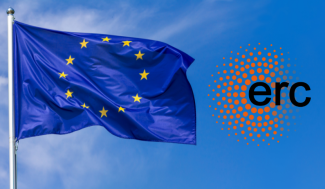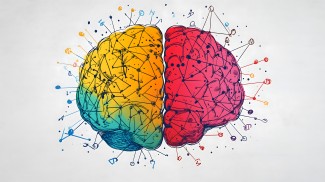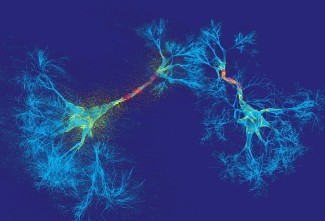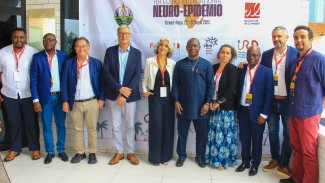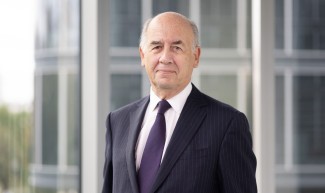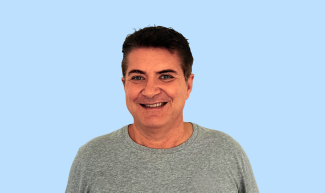The European Research Council (ERC) has just published the list of recipients of “Starting grants” funding for 2023. The three candidates from Paris Brain Institute who applied to this highly competitive call for proposals have been awarded this prestigious label.
ERC Starting Grants are intended to enable scientists at the start of their careers to build up or strengthen their research teams around projects on ambitious, high-risk subjects, addressing innovative scientific issues or challenges that have not yet been tackled. Over five years, the ERC will fund three exploratory research projects coordinated by young researchers at Paris Brain Institute, at the frontiers of knowledge of brain development, sleep and brain-gut interaction.
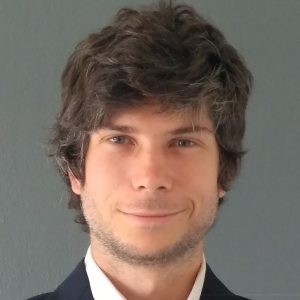
Thomas Andrillon, post-doctoral researcher in the “MOV’IT: MOVEMENT, INVESTIGATIONS, THERAPEUTICS. NORMAL AND ANORMAL MOVEMENT: PHYSIOPATHOLOGY AND EXPERIMENTAL THERAPEUTICS” team has been awarded an ERC starting grant for his project “Sleeping Awake”, focusing on local sleep intrusions in the awake brain and their consequences.
What happens in our brains when we’re tired? Mental fatigue can occur for a variety of reasons, from prolonged periods of wakefulness to intense cognitive effort.
Sleep and wakefulness are not mutually exclusive states. Earlier work by Thomas Andrillon showed that high-amplitude slow waves (SW), characteristic of sleep, can be observed locally in awake individuals after performing demanding tasks or after periods of sleep deprivation. These slow waves of wakefulness have been associated with impaired cognitive performance such as interruptions in attention.
The ERC-supported project aims to better understand the neurophysiological basis of fatigue, what local sleep is and why it occurs. In addition, the results of this research could make it possible to predict the adaptive objectives of sleep in the awake state, modulate its frequency and obtain essential new insights into the neural mechanisms underlying the everyday phenomenon of fatigue.

Sara Bizotto, post-doctorant researcher in the “GENETICS AND PHYSIOPATHOLOGY OF EPILEPSY” team, has been awarded an ERC grant for her “LINMOS” project, which focuses on the identification of cellular processes during human brain development.
Organisms develop through cell divisions generating clones that progressively organize to form different tissues. In order to track cell lines, each cell division must be permanently and uniquely marked. Very recently, studies have shown that human tissues contain a set of natural markers in the form of somatic DNA variants that permanently and cumulatively mark each cell division during development. Previous work by Sara Bizotto has shown that somatic variants are reliable for tracking cell lines directly in human tissues. The ERC-supported project aims to reveal the cellular processes that form the human brain and their dynamics, reconstructing the cellular phylogenies of neural progenitors by comparing normal versus overgrowth cortical malformation brains.

Dafni Hadjieconoumou, newly recruited as head of a team dedicated to the brain-gut axis, has been awarded ERC support for her “GutSense” project, which focuses on the cellular and molecular mechanisms controlling communication between the brain and the gut.
The brain-gut axis has emerged as a key player in regulating aspects of human physiology by directly affecting energy stores. Nevertheless, due to the astonishing anatomical complexity of the underlying neural circuits, a depth understanding of this axis is still lacking. Using a simpler yet functionally comparable Drosophila fly model as a model system, the work of Dafni Hadjieconoumouhas shown that adult enteric neurons are functionally plastic. This constitutes a physiological feature highly relevant for the adjustment of food intake by the animal to meet energy demands. The ERC-supported project will investigate the impact of environmental factors, such as dietary habits or physical activity levels, on the function of the brain-gut axis.
Sources
https://institutducerveau-icm.org/en/team/team-lehericy-vidailhet/#more…
https://institutducerveau-icm.org/en/team/team-baulac-leguern/#more-3985

